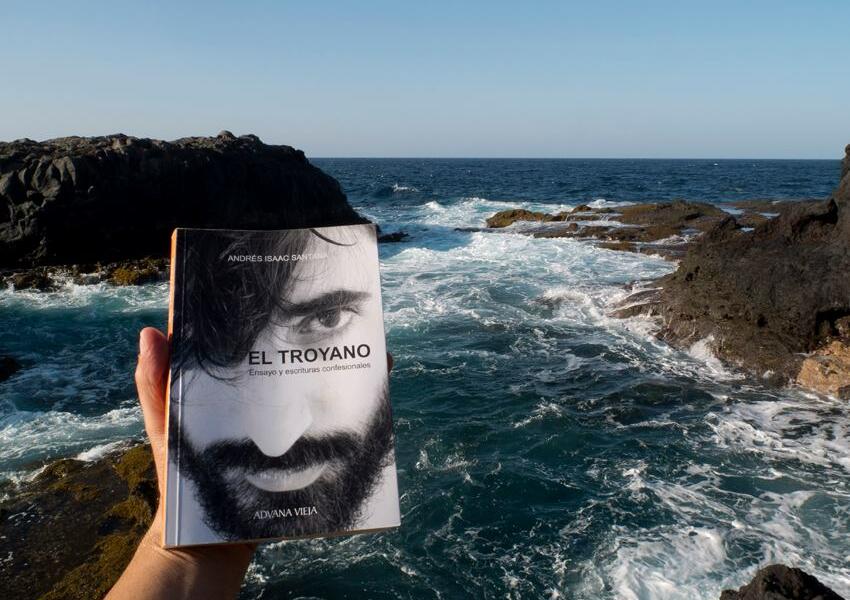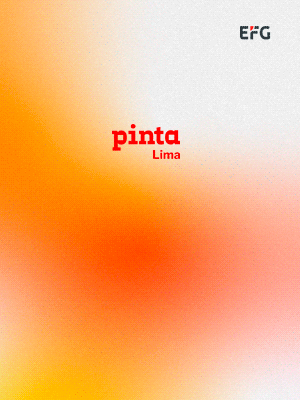Andrés Isaac Santana launches El troyano/The Trojan, an intimate reflection on the role of the art critic
El troyano/The Trojan is the most personal and intimate book by Andrés Isaac Santana (Cuba, 1973), a critic and essayist who holds a degree in Art History from the University of Havana.

Through the epistolary genre, we are invited to become accidental recipients and indiscreet witnesses not only of these “conversations” but also of the author’s revelations regarding his own life and work. Letters are the emotional vehicles through which he also poses reflections on the spirit and work of the art critic, as well as on his/her discourse and relative capacity for dialogue in the society in which he/she lives.
The author of numerous texts on contemporary art and culture, among Isaac Santana’s books mention may be made of Imágenes del desvío: la voz homoerótica en el arte cubano contemporáneo (2004), Nosotros, los más infieles: narraciones críticas sobre el Arte Cubano. 1993-2005 (2008), as well as Sin pudor (y penetrados), a comprehensive anthology of his work published by Aduana Vieja in 2013. A correspondent for the prestigious Latin American art magazines ArtNexus and Arte al día Internacional, among others, he was for several years a contributing editor for the art section of the Madrid ABC newspaper’s Cultural Supplement.
Joaquín Badajoz, writer and member of the North American Academy of Spanish Language, is the author of the prologue which includes the following fragments: “Aside from other theoretical and conceptual achievements of El troyano, I would like to highlight the scope of these texts, their elegant style, the smooth flow of the author’s ideas, the ease with which he develops, puts up with, and dominates the beast of intimate conversation and its reverse, public debate, as an exercise of authority…”
“His work is a Hydra head of ´wandering intellectuallity’: it presupposes the existence of a group of complicit recipients and a contextual distance (…). Even though these letters seem rather to have been written to himself, and I suspect that some recipients will receive them now, in book form, for the first time, the marked dialogues constitute hypertexts, backdoors of an open work that does not end in the letter itself but that continues in the “non-narrated” fiction that each of its recipients contributes in an exogenous way. It is impossible to write an essay on the basis of lack of authority on the subject and of a discerning judgment: novelty in literature, as in art, does not reside in the platforms, in the paraphernalia, but in the interpretive and speculative personal vision. For this reason, the author explains the use of quotations, those “body prostheses afforded by the discourse of others”, released without any reference, in complete and random polygamy, “battling for the conquest of the other person’s text (…)”
For her part, in her EXIT Express.com website, Rosa Olvidares wrote the following commentary on the book: “The reorientation of the activities of art critics and theoreticians has become increasingly habitual, increasingly public, and increasingly interesting. This currently applies to Andrés Isaac Santana, who is presenting a new publication in which he gives free rein – now openly – to his literary ability from his most passionate and individual essence (…). The important thing here is writing, and the act of writing implies a liberation and also a liturgy. Knowledge and the wish to express an opinion, to speak, to say, are transformed into written words in these fictitious or real letters; texts in which the author talks about art, but also about life, experience, loneliness, anxiety, reunions and recognitions, abandonments, and above all, about an intense life dominated by thought and culture.”
In the book’s epilogue, Andrés Isaac Santana writes: “To name, to say, to verbalize always implies a maneuver to certify, lo legitimize, to disapprove. For this reason, because of this strange feeling of emptiness that accompanies everyday life, these letters are, in a certain way, a search for a map, the – random – finding of that territory where subjectivity may be recognized in the ambiguous projection of its own image. The text is the support – as volatile as it is evanescent – to perpetuate the individual’s own image in the dialogue with the other. Writing is thus transformed into therapy, into exorcism, into prophylaxis: into that mechanism through which angst is only a memory that freezes and disappears in the horizon of a representation that is most weary of and bored with itself. And this does not mean that the mentioned writings should be read as treason or as foreign to the will to be (more than ever) an honest man. They bear in their body, in the very center of their digressions and nonsense, the imprint of confession and ( im)properness. They put into words, if you will, a way of being and of understanding life in a less figurative manner to give way to a more abstract exercise in terms of fiction and narrative”.
................................................






